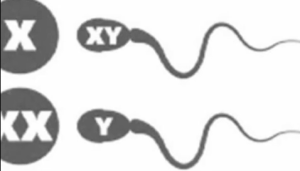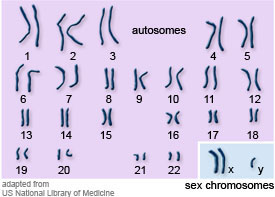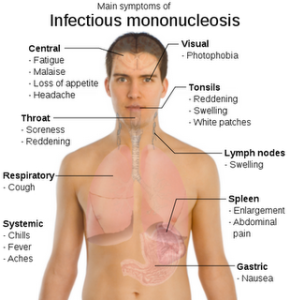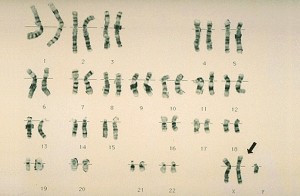Klinefelter syndrome is a congenital, genetic disorder caused due to the presence of an additional copy of the X chromosome in a boy. It is one of the most prevalent genetic disorders found in males
Klinefelter syndrome severely affects the growth of the testicles which can lead to the presence of unusually small testicles, which in turn can result in decreased manufacture of the sex hormone known as testosterone. Additionally, Klinefelter syndrome may result in larger breast tissue, decreased amount of facial and body hair, and diminished muscle mass. The effects of Klinefelter syndrome differ from one affected person to another and not all patients may experience the symptoms
Klinefelter syndrome generally tends to remain undetected until adulthood. Most men affected by the disorder produce reduced or no sperm. However, advanced reproductive treatment methods can result in a few men with Klinefelter syndrome becoming fathers.
Klinefelter syndrome symptoms
Most of the babies affected by Klinefelter syndrome may rarely elicit any signs and symptoms, and the disorder may remain undiagnosed till adulthood. Other affected males may have marked problems in development and appearance. A few boys with Klinefelter syndrome may experience learning and speech difficulties. The signs of the condition tend to differ as per age of the child.
The symptoms of Klinefelter syndrome in babies include:
- Frail muscles
- Delay in speech
- Delays in achieving motor developmental milestones such as sitting up, crawling and walking
- Presence of undescended testicles and other abnormalities present at birth
- The personality is generally passive and quiet
The symptoms of Klinefelter syndrome in boys and teenagers include:
- They are taller than normal standards
- Incomplete, delayed or absent puberty
- The torso is shorter, the legs are longer and the hips are broader as compared to normal boys
- Presence of reduced facial and body hair and reduced muscular bodies as compared with normal teens
- Presence of a small penis along with small and solid testicles
- The breast tissue is usually enlarged
- Diminished energy levels
- Weak bones
- Increased shyness
- Difficulties with writing reading, math or spelling
- Problems in the expression of feelings or in socialization
- Attention or concentration problems
The symptoms of Klinefelter syndrome in men include:
- Larger breast tissue
- Infertility
- Taller than normal height
- Small penis and testicles
- Reduced facial and body hair
- Weak bones
- Sexual problems, such as decreased sex drive, etc.
Some of the complications that result from Klinefelter syndrome are listed below:
- The presence of weak bones may lead to osteoporosis
- Excessive belly fat which can cause various other health problems
- Increased risk to:
- Attention difficulties, Learning disabilities and/or social development problems
- Abnormalities with sexual function
- Some birth defects such as cleft palate, curved fifth fingers, etc.
- Varicose veins and other blood vessel problems
- Cancers of the bone marrow or lymph nodes and blood, breast cancer, etc
- Infertility
- Autoimmune disorders like lupus and type 1 diabetes
- Lung diseases like chronic bronchitis
Causes of Klinefelter syndrome
Klinefelter syndrome is caused due to a random error that results in the male child to be born with an additional X chromosome. A normal girl child is born with two X sex chromosomes and a normal boy child is born with an X sex chromosome and a Y sec chromosome.
A majority of the cases of Klinefelter syndrome are generally caused due to the presence of an additional copy of the X chromosome in each cell. A few males with Klinefelter syndrome may have an additional copy of the X chromosome in only some cells of the body causing mosaic Klinefelter syndrome. In very rare cases, males with Klinefelter syndrome may be born with more than one additional copy of the X chromosome.
Klinefelter syndrome is not an inherited disorder. The presence of an extra sex chromosome is caused due to some random error at the time of maternal egg development or paternal sperm formation, or at the time of conception
Women who become mothers after the age of 35 are at a greater risk to conceiving a child with Klinefelter syndrome as compared to women who conceive at a younger age.
Klinefelter syndrome treatment
There is no cure for Klinefelter syndrome and undo the damages that are caused due to the presence of the additional sex chromosome. However, early diagnosis of the condition can result in limiting its effects. It is important to note that treatment for Klinefelter syndrome can be done at any age.
Some treatment methods for Klinefelter syndrome include the following:
- Testosterone replacement therapy, when started at puberty, can aid the normal growth of the body and diminish many effects of Klinefelter syndrome. However, it does not enhance fertility or improve the testicular size.
- A majority of men affected Klinefelter syndrome are infertile and do not produce any sperm. Fertility treatment is useful for those men who have diminished sperm production, and may possibly become fathers.
- Learning and speech problems can be overcome with physical and speech therapy
- The excessive breast tissue may be surgically removed
- Counseling and psychotherapy is used for treating the various emotional and social problems that may result in men with Klinefelter syndrome
Klinefelter’s syndrome pictures




Good article!! thank you!! I just signed up to your blog RSS.